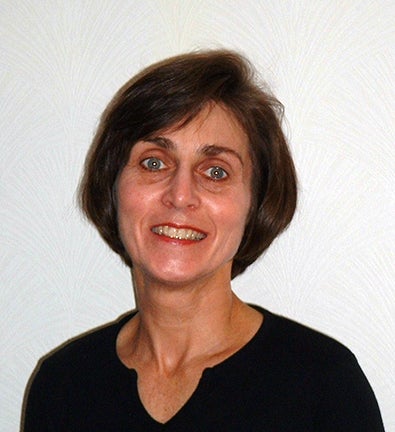KINGSTON, R.I., Aug. 29, 2016—You have your doctorate in, say, English literature. Now what?
You could teach, but what if you’d like to look beyond academia?
The University of Rhode Island is pondering this question, thanks to a grant from the National Endowment for the Humanities to study ways to broaden career opportunities for graduate students in the humanities.
URI was one of 28 colleges and universities in the country awarded a total of $1.65 million in a program called “Next Generation PhD.’’ URI received $25,000 from the NEH and matched the award with $25,000.
“The academic-focused future we’re accustomed to training graduate students for is disappearing,’’ said NEH Chairman William D. Adams. “If graduate programs wish to make a case for the continuation of graduate education in the humanities, they’re going to have to think about the professional futures of their students in entirely different ways.’’
The program tackles how doctoral students who immerse themselves in graduate humanities research and writing can apply their skills and experience beyond teaching and professor jobs to broader careers.
Kathleen Davis, a professor of English at URI and director of the URI project, says her “Humanities at Large’’ committee will develop cross-disciplinary and experiential learning for humanities PhD students in five areas: the coastal environment; health and medicine; digital humanities and “big data’’; publishing and editing; and cultural organizations in the community.
“URI has strengths and connections in all these areas,’’ says Davis, “and faculty across the University are eager to participate.”
Coastal environment is one of the University’s largest research areas, and faculty working in marine affairs, oceanography and underwater archaeology will help develop innovative curriculum opportunities. The URI Coastal Institute, under the direction of Professor Judith Swift, has already provided a fellowship so that a doctoral student can get experience in coastal resource management and understand the roles of the humanities in areas like public outreach and environmental justice.
The timing is right for humanities PhD students at URI to explore potential roles in health and medicine. URI has recently established the Institute for Integrated Health and Innovation, and the interim director, Professor Bryan Blissmer, is eager to embrace the humanities as he works to integrate existing programs, Davis says.
URI has been building faculty strength in digital humanities, which combines the computing and humanities disciplines, and has established the Big Data and High Performance Computing Collaborative. Students can get experience in this area by helping with a project to examine and digitize U.S. Sen. Claiborne Pell’s archive covering the 36 years he served as senator from Rhode Island.
URI’s “Next Generation PhD” team will team up with cultural organizations in the community, such as public libraries and museums, to develop career paths for doctoral students. This effort comes at an opportune time. Due to changing public needs and financial pressures, these organizations are reinventing themselves, shifting to roles in public outreach and education.
URI’s English department already offers PhD publishing and editing experience. Building on this strength, the committee will reach out to local presses that publish academic journals and fiction and hold workshops to explore potential internships and career strategies.
At least 30 faculty members, administrators, graduate students and alumni will work on URI’s “Next Generation PhD” project. The work will begin with an early September meeting of the Core Committee members: Davis; Swift; Winifred Brownell, dean of Arts and Sciences; Andrea Rusnock, associate dean of the Graduate School; Kim Stack, director of the Center for Career and Experiential Education; Martha Rojas, an English professor; Kim Evelyn, a 2015 URI graduate and an adjunct faculty member; and Molly Hall and Beth Leonardo, both graduate students.
With the guidance of the Core Committee, smaller groups in each of the five areas will develop cross-disciplinary and experiential learning for humanities doctoral students.
Davis says that the project’s goals are to work on partnerships, internships, new collaborations and changes to the curriculum that will prepare URI’s PhD students to “expand their career aspirations and bring the fruits of humanities learning to all aspects of civic life.”
“We’re excited to be among the very first group of universities in the country funded for this purpose,” Davis says. “It’s quite an honor.’’
URI is in good company. Among the other colleges that received grants are Duke University, Princeton University, University of California, Berkeley, University of Chicago, University of Iowa and University of North Carolina, Chapel Hill.
“Faculty and students alike at URI believe that higher education must invest in transforming the doctoral experience, not only to prepare students for a changing job market, but also to bring the skills of humanities students to bear on complex 21st-century problems like climate change,’’ says Davis. “This NEH grant will galvanize energies and give purpose to this important project.’’

